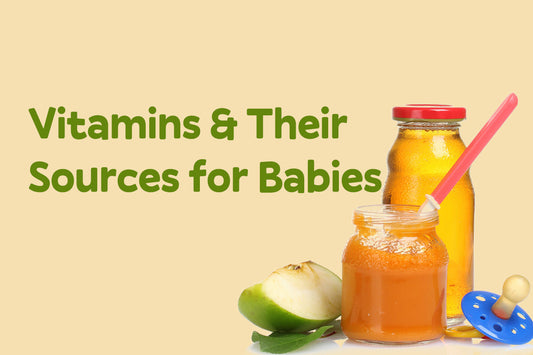The Ultimate Guide to Vitamin B Complex for Kids
Types of Vitamin B Complex and Benefits for Kids
One of the key nutrients every child needs is Vitamin B Complex, a group of eight essential vitamins that support growth, brain development, and energy production. Let’s explore the types of Vitamin B, how much kids need, and the best food sources for these vital nutrients.
What is Vitamin B Complex?
Vitamin B Complex consists of eight different vitamins, each with its unique role in keeping your child healthy. These vitamins help the body convert food into energy, support the nervous system, and promote healthy skin and red blood cells. Since the body cannot store Vitamin B, children must get it regularly from their diet.
Recommended Daily Allowance (RDA) of Vitamin B Complex for Kids
For Children 4 and Above:
- Pantothenic acid: 3-4 mg/day.
- Thiamine: 0.6-0.9 mg/day for children 4-8 years.
- Niacin: The RDA is 6-12 mg/day for children aged 4-8.
- Riboflavin: 0.6-0.9 mg/day for children in this age group.
- Pyridoxine (Vitamin B6): 0.5-1 mg/day for kids aged 4-8.
- Folic acid: 400 mcg daily
- Biotin: 12-20 mcg/day for this age group.
- Vitamin B12: 1.2-1.8 mcg/day for children 4-8 years.
For Children Under 4 Years:
- Folic acid: The RDA is 150-200 mcg/day.
- Thiamine: 0.5 mg/day for toddlers 1-3 years.
- Niacin: The RDA is 6 mg/day for children aged 1-3 years.
- Riboflavin: The RDA is 0.5 mg/day for children aged 1-3 years.
- Pantothenic acid: 2 mg/day for toddlers aged 1-3.
- Biotin: 8-12 mcg/day for toddlers.
- Pyridoxine: 0.5 mg/day.
- Vitamin B12: 0.9 mcg/day.
It’s always a good idea to check with your pediatrician for specific recommendations based on your child's needs.
8 Types of Vitamin B Complex and Their Benefits for Kids
- Vitamin B1 (Thiamine):
- Benefit: Supports energy production and a healthy nervous system.
- Sources: Whole grains, nuts, seeds, and legumes.
- Vitamin B2 (Riboflavin):
- Benefit: Important for growth, eye health, and energy production.
- Sources: Dairy products, eggs, leafy vegetables, and almonds.
- Vitamin B3 (Niacin):
- Benefit: Helps with brain function, healthy skin, and digestion.
- Sources: Fish, chicken, peanuts, and whole grains.
- Vitamin B5 (Pantothenic Acid):
- Benefit: Aids in the production of hormones and energy.
- Sources: Avocados, sweet potatoes, and yogurt.
- Vitamin B6 (Pyridoxine):
- Benefit: Crucial for brain development and immune system support.
- Sources: Bananas, spinach, potatoes, and chickpeas.
- Vitamin B7 (Biotin):
- Benefit: Promotes healthy hair, skin, and nails.
- Sources: Eggs, almonds, sweet potatoes, and mushrooms.
- Vitamin B9 (Folate/Folic Acid):
- Benefit: Essential for cell growth and forming red blood cells.
- Sources: Lentils, beans, citrus fruits, and spinach.
- Vitamin B12 (Cobalamin):
- Benefit: Important for nerve function and the production of red blood cells.
- Sources: Meat, fish, dairy products, and fortified cereals.
Best Food Sources of Vitamin B Complex
Ensuring your child gets a variety of foods from different food groups is the best way to meet their Vitamin B needs. Some of the top foods include:
- Dairy products like milk, yogurt, and cheese
- Whole grains such as brown rice, oats, and whole wheat bread
- Eggs, which are rich in multiple B vitamins
- Leafy greens like spinach and kale
- Legumes like beans, peas, and lentils
- Nuts and seeds such as almonds, sunflower seeds, and flaxseeds
If your child follows a vegetarian or vegan diet, pay special attention to Vitamin B12, which is primarily found in animal products. Fortified cereals and plant-based milk can help fill this gap.
Conclusion
Vitamin B Complex is vital for your child’s overall health and development. By ensuring they get a balanced diet rich in B vitamins from natural food sources, you’re setting the foundation for their long-term well-being. Always consider consulting your paediatrician if you feel your child may need a supplement, especially if they follow a restrictive diet.





